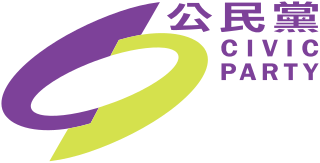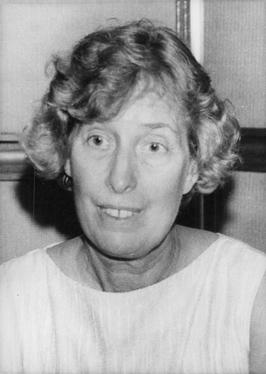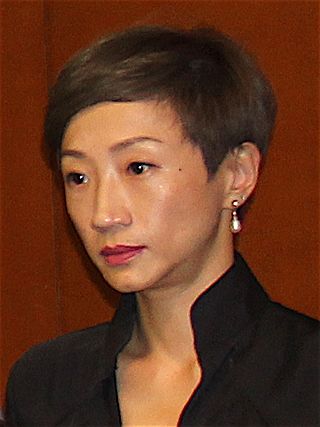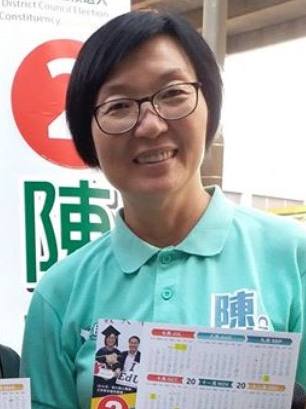
The Civic Party (CP) was a pro-democracy liberal political party from March 2006 to May 2023 in Hong Kong.

The Reform Club of Hong Kong was one of the oldest political organisations in Hong Kong, existing from 1949 until the mid-1990s. Established by expatriates who were concerned about the Young Plan proposed by Governor Mark Aitchison Young in 1949, the Reform Club was the first semi-political party to contest in the Urban Council elections, with its longtime chairman Brook Bernacchi serving on the Council for about forty years.

Elsie Tu, known as Elsie Elliott in her earlier life, was a British-born Hong Kong social activist, elected member of the Urban Council of Hong Kong from 1963 to 1995, and member of the Legislative Council of Hong Kong from 1988 to 1995.

Tanya Chan is a Hong Kong politician who served as a Legislative Councillor representing Hong Kong Island from 2008 to 2012, and again from 2016 to 2020. She is a founding member of the Civic Party. Chan is sometimes known as the "Zhou Xun of the Civic Party". On 29 September 2020, Chan announced that she would quit politics.

The 1991 Hong Kong Urban Council and Regional Council elections were the municipal elections held on 5 May 1991 for the elected seats of the Urban Council and Regional Council respectively. The election saw the direct rivalry between the newly established political parties, the liberal United Democrats of Hong Kong (UDHK) and the conservative Liberal Democratic Federation of Hong Kong (LDFHK) which the liberal forces won a landslide victory.

The 1986 Hong Kong Urban Council and Regional Council elections were the municipal elections held on 6 March 1986 for the elected seats of the Urban Council for Hong Kong Island, Kowloon and New Kowloon and newly created Regional Council for the rest of the New Territories respectively.
The 1955 Hong Kong Urban Council election was held on 30 March 1955 for the two of the four elected seats of the Urban Council of Hong Kong. It was the fourth Urban Council election in the post-war period.

The 1956 Hong Kong Urban Council election was held on 7 March 1956. The elected seats were extended from four to eight seats and the election was for the 6 of the 8 elected seats of the Urban Council of Hong Kong. 6,040 of the 14,682, about 41 per cent of the eligible voters cast their ballots in this election, highest turnout rate in the history of the Urban Council elections.
The 1957 Hong Kong Urban Council election was held on 8 March 1957 for the four of the eight elected seats of the Urban Council of Hong Kong. Since this election the term of the members was extended from two years to four years.
The 1959 Hong Kong Urban Council election was held on 3 March 1959 for the four of the eight elected seats of the Urban Council of Hong Kong. The turnout rate dropped to 30.7 per cent but there were still 7,236 of the 23,584 eligible voters cast their votes, 5,354 ballots from Hong Kong Island and 1,882 from Kowloon. Ernest Charles Wong, chairman of the Tung Wah Group of Hospitals won a seat for the Hong Kong Civic Association of which Philip Au of the Reform Club of Hong Kong retired from, while the other three Club incumbents were re-elected.

The 1967 Hong Kong Urban Council election was held on 7 June 1967 for the five of the ten elected seats of the Urban Council of Hong Kong. A record of 38.7 per cent turnout as 10,130 of the 26,202 eligible voters came out and cast their ballots, in the middle of the Leftists' disturbances.

The 1969 Hong Kong Urban Council election was held on 5 March 1969 for the five of the ten elected seats of the Urban Council of Hong Kong. 8,178 of 34,392 registered voters voted, the turnout rate was 23.8 per cent, a sharp decline from the record breaking turnout in the previous election in 1967.

The 1973 Hong Kong Urban Council election was held on 7 March 1973 for the seven of the 12 elected seats of the Urban Council of Hong Kong. Two new elected seats were created in the election. 8,675 eligible voters cast their votes, the turnout rate was 27.64 per cent.
Chan Shu-woon was an educator in China, Hong Kong and the United States.

William Sui-tak Louey was a Hong Kong businessman and the founder and Chief Manager of the Kowloon Motor Bus Company.

The 2016 Hong Kong Legislative Council election was held on 4 September 2016 for the 6th Legislative Council of Hong Kong (LegCo). A total of 70 members, 35 from geographical constituencies (GCs) and 35 from functional constituencies (FCs), were returned. The election came after the rejection of the 2016/2017 constitutional reform proposals which suggested the electoral method for the 2016 Legislative Council remains unchanged.
Solomon Rafeek, BEM was an elected member of the Urban Council of Hong Kong.
Third Side is a political party in Hong Kong which claims to offer a "third road" to democracy, positioned between the pro-democracy camp and the pro-Beijing camp. It is led by Tik Chi-yuen, who was a co-founder and longtime member of the Democratic Party until his expulsion in 2015 for promoting political reforms proposed by the Chinese central government.

Josephine Chan Shu-ying is a Hong Kong politician and former chairman of the Tuen Mun District Council. As a Democratic Party member, Chan has been member of the Tuen Mun District Council from 1994 to 2015 and again from 2020 to 2021 for Siu Hong constituency and former member of the Regional Council.
2019 Hong Kong Rural Representative election was held in January 2019 to elect 1,540 Rural Representatives in the New Territories of Hong Kong. This is the first time pro-democracy camp formed electoral alliance to run in the rural election, despite co-initiator Eddie Chu was disqualified and the alliance failed to gain any seats.












